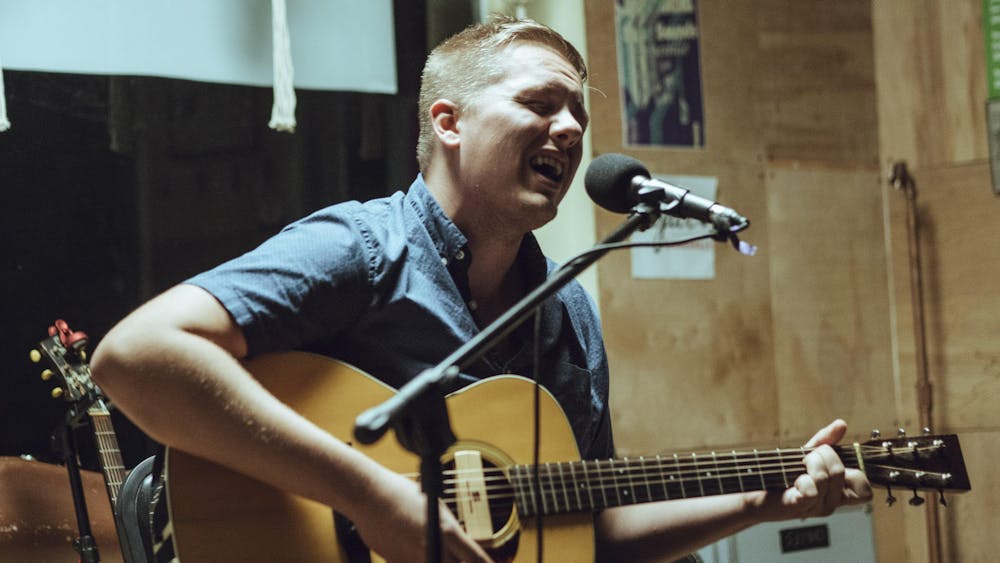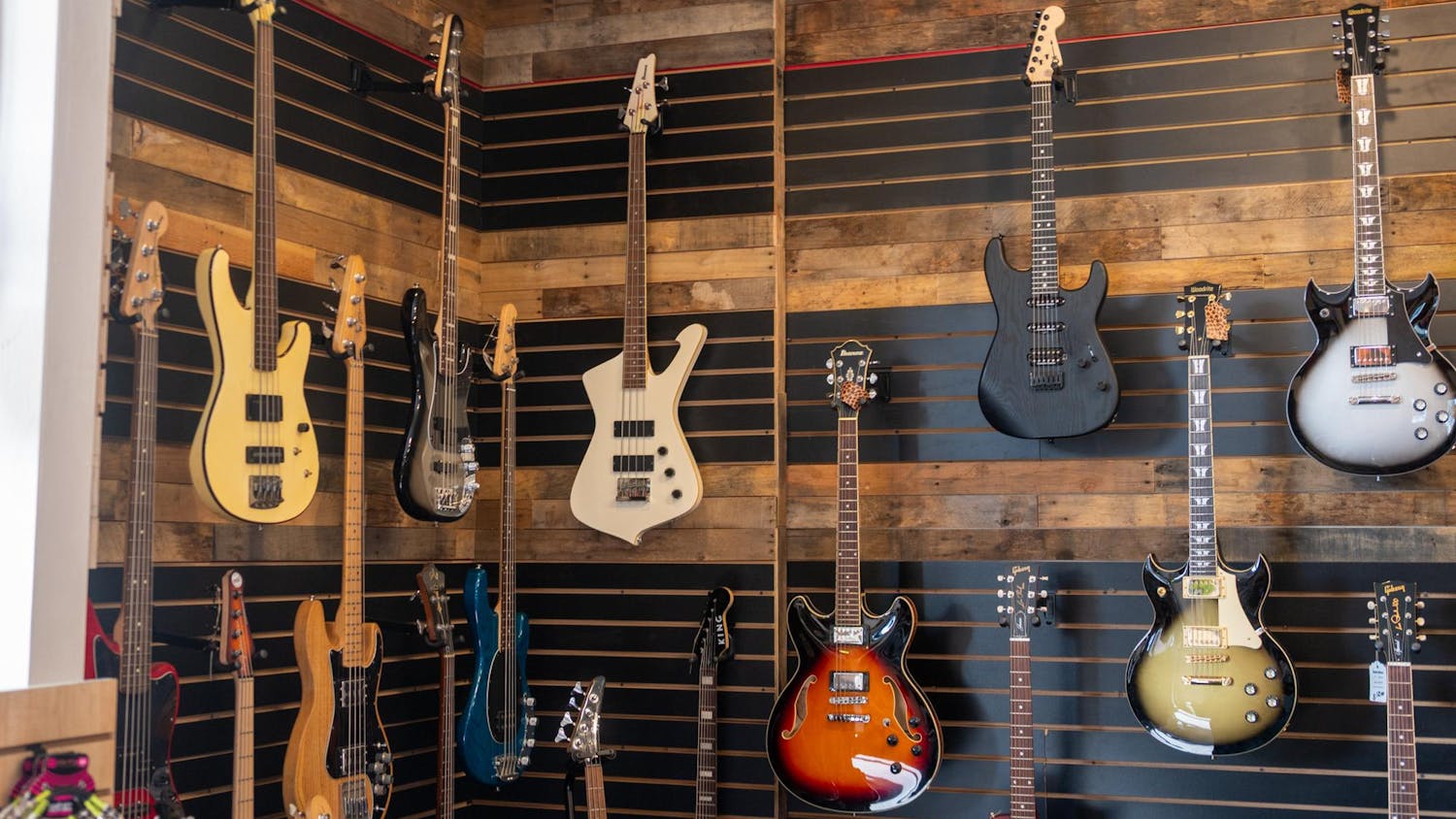The life of a musician isn’t always fast cars, fancy houses or five-star hotels.
In Jordan Burchel’s case, it’s a home office that moonlights as a makeshift recording studio, or writing music in the minutes between his day job as a technology contract consultant.
Burchel, a 29-year-old Gainesville musician, is one of thousands of artists nationwide whose career has been deterred by the COVID-19 pandemic. In a field that can feel futile in even the best of times, artists have spent the last eight months exploring narrow avenues of profitability.
The cancellations of live shows en masse brought a host of consequences - namely, the loss of a major source of revenue. This has left artists navigating profitability in different ways.
“They’re screwed right now,” said Chelsea Carnes, a 32-year-old outreach project specialist at Santa Fe College and member of the Gainesville bands Wax Wings, Palimony, Rancho La Chua and Mourning Glories. “Touring is how you make money, unless you’re super famous and on a label and making lots of record sales.”
In March, Burchel had been playing at least one show a month with his seven-piece band and more on his own. He believed pandemic closures would bring only a short hiatus, but it became clear the touring drought would last much longer.
“One of the things I started doing that I hadn’t really done before was record music with other people,” he said.
Using his home studio, Burchel began to help other local musicians record, mix and master their music. With more free time, he said the Gainesville music community took the opportunity to write and record more material than it normally would have produced.
But the pressing matter was earning a profit, and artists initially found the answer in livestreams. Organizations like MusicGNV, a local nonprofit dedicated to supporting artists, and the UF Center for Arts in Medicine, among others, have sponsored livestreams over the past months where Gainesville artists like Burchel participated.
The platform has allowed artists to perform as close to live as possible, but with only a musician and recording equipment necessary, live streams fail to replicate touring.
“There’s more transactions that happen around actual live shows, so there’s more money to be paid,” Burchel said.
These transactions include a percentage of the ticket sales and sometimes a percent of the venue’s profits for the night. Merchandising tables also allow musicians to sell CDs, stickers and other products.
Even in a non-monetary sense, live shows are profitable opportunities – free promotion to a room full of people.
Many artists have turned to social media to market themselves through the pandemic, increasing their online presence to reproduce the audience engagement found in a live setting. But for Burchel, it can’t compare.
“Nothing is as powerful as a sort of peer-to-peer interaction,” he said.
Musicians are looking to the online environment to maintain a relationship with their fans. Moving forward, Burchel plans to become more active on social media as well as release music more frequently.
His strategy is part of the push to stay relevant in a crowded field. With streaming platforms, music from millions of artists is just one click away, and because of the abundance of options, it’s necessary for an artist to gear listeners toward streaming their music.
For smaller artists, streaming services aren’t offering much of a financial reprieve. At just $0.00437 per stream, musicians have to break into the millions in streams – numbers local musicians aren’t likely to reach – to stay viable.
Burchel cited purchasing merchandise and promoting an artist through word-of-mouth as the most beneficial ways to support a local artist. With the profits from those sales and the traffic of new listeners going directly to the artists, these methods will likely carry local musicians through the lack of touring.
“The cost-to-revenue for that band or artist is as high as it can possibly be,” he said.
Marketing strategies for many artists are reflecting the importance of these sales. Social media posts are directing fans to purchase artist merchandise on websites like Bandcamp, where artists can upload their products directly and set their own prices.
The response from listeners is noticeable - Bandcamp’s sales have jumped 122% in the past year.
But the direct transactions in purchasing music or merchandise are only half the battle. The first step to becoming a fan of an artist and engaging with their work is to become aware of them in the first place.
Listeners can contribute by spreading an artist’s material across social media and driving internet traffic toward them. Burchel said the growth of this online ecosystem, where fans take it upon themselves to market an artist they enjoy, is the key to musician survival.
“Become a cheerleader online,” he said.

Heather Bushman is a fourth-year journalism and political science student and the enterprise elections reporter. She previously wrote and edited for the Avenue desk and reported for WUFT News. You can usually find her writing, listening to music or writing about listening to music. Ask her about synesthesia or her album tier list sometime.





